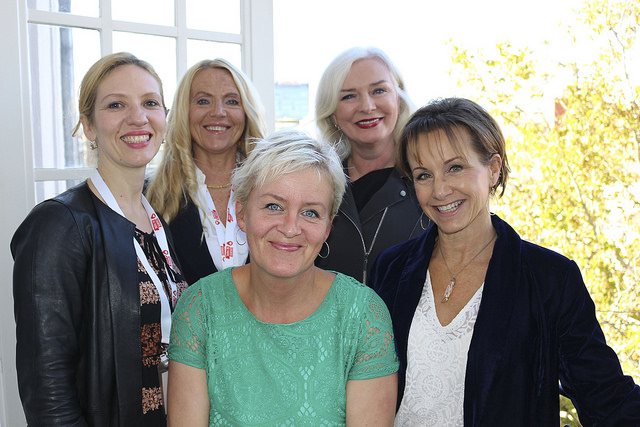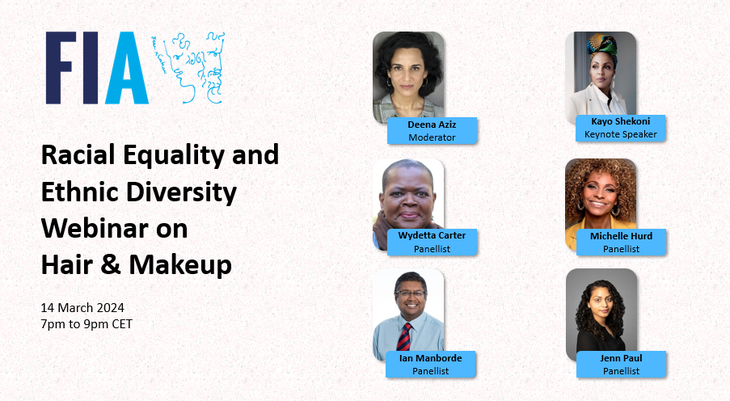The Executive Committee of the International Federation of Actors met in Zagreb, Croatia, from October 26 to 27, 2017, gathering delegates from 21 performer unions in15 countries. FIA was welcomed by its Croatian affiliate Hrvatsko Društvo Dramskih Umjetnika (HDDU), which was elected to FIA’s Executive Committee for the first time at the Sao Paulo Congress in 2017.
At HDDU’s invitation, an envoy of the Ministry of Culture opened the meeting and addressed the group, noting that many national topics have an international resonance and that exchanging experiences and good practices will be very meaningful for Croatia. FIA’s Secretary General Dominick Luquer used the opportunity to recall FIA’s 2016 Congress motion deploring the lack of collective bargaining coverage for performers in the Croatian audiovisual sector. He warmly urged the Ministry to encourage public and private broadcasters to engage with their trade union counterparts. The protections and security offered by a collective bargaining agreement are vital to underpinning a sustainable situation for performers in Croatia and around the world. This call was warmly applauded by the international delegates present at the Executive. The meeting then proceeded to statutory business, reviewing and approving FIA’s accounts and action plan and dealing with membership matters.
Naturally, other issues of joint concern were also prominent on the agenda. In the immediate wake of the Weinstein debacle, delegates shared good practices with respect to tackling workplace harassment; promoting a respectful work environment – including at casting, rehearsals and during production – raising awareness and promoting ethical codes in the industry; whilst establishing effective mechanisms for case reporting, handling and resolution. Many union-led surveys disclosed the worrying intensity of the problem, its wide-ranging ramifications and the extensive traumas suffered by the victims. Despite harassment being wretchedly common in other sectors too, and more acutely where precarious workers fear losing their only source of income, the entertainment sector is particularly exposed to these occurrences, as intimacy is frequently scripted and performed on stage or on camera. Indeed, in some countries’ media industries, harassment is reported to be close to endemic. New directing practices are emerging to make sure, just like stage fights or dance choreographies, that nudity and sexual scenes are properly and respectfully handled. More and more performers, women and men alike, are encouraged by their unions to speak up and reject “quid pro quo” harassment as the inevitable gateway to building a professional career in the arts, media and entertainment sector.
The FIA Executive unanimously adopted a declaration, condemning all forms of sexual harassment, discrimination or retaliation for the reporting of harassment – whilst urging the industry to work in good faith with performer organisations to promote a zero-tolerance and harassment-free work environment. A specific working group was also set up to develop further policy work for FIA in this area.
The FIA Executive Committee exchanged on several initiatives seeking to help refugee artists and their families escape war and prosecution, resettle in other parts of the world and find rewarding job opportunities in their respective field of expertise. Dramatic migrations in recent years, also affecting artists, have prompted several FIA affiliates to support diversity and inclusion by taking part in pilot projects, from Sweden to Turkey, in the spirit of international solidarity.
Having substantially improved terms and conditions for work in video games and interactive media, several FIA affiliates showed how unions can be on the cutting edge of technology and negotiate agreements of high significance for their membership working in a fast-changing environment. Voice-over work was also the focus of much debate, in light of several online intermediaries thriving on a large pool of unprofessional free-lance work, undermining union rates and taking a generous cut in the process. Delegates also discussed how to improve and gear up work on international productions / co-productions and develop synergies with other international federations in our sector to promote respect for core labour principles among global media companies. FIA continues to campaign for the ratification of the WIPO Beijing treaty on Audiovisual Performances and, with 11 countries still needed for this convention to enter into force, the FIA Executive discussed and agreed on new priorities and awareness-raising policies.
FIA Declaration on Sexual Harassment (en français / en español)
FIA Resolution on Internet Broadcasters (en français / en español)
FIA resolution on Same-Sex Marriage (en français / en español)
A selection of pictures of the FIA Executive Committee Meeting are available on our Flickr account.





